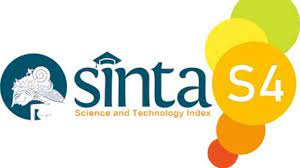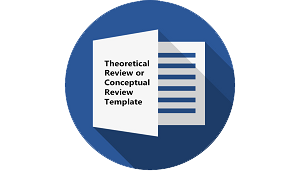The Analysis of Maxim Violation in Generation Z Conversation on WhatsApp
DOI:
https://doi.org/10.30957/ijoltl.v9i1.767Keywords:
Maxim Violation, Generation Z, WhatsAppAbstract
A good conversation is one that has rules. According to Grace's theory (1975), there are four rules of conversation, namely, the maxim of quantity, the maxim of quality, the maxim of relation, and the maxim of manner. In fact, Generation Z often ignores these rules when having conversations. The purpose of this research is to find out the types of maxims violated by Generation Z on WhatsApp. This study used qualitative research methods. The selected participants were Generation Z, namely five students of the English Education Department class of 2020 C. The reason for selecting these participants was because, currently, the majority of Generation Z is at the tertiary level. Document analysis and content analysis were used as data collection techniques. Condensing, presenting the data, and drawing conclusions are all parts of the data analysis process. The result is that the majority of Generation Z violates all types of maxims, and the most dominant is the maxim of relation. In conclusion, even though Generation Z has learned the rules of conversation, the fact is that in carrying out conversations, Generation Z does not apply the existing rules, so conversations become ineffective.
Downloads
References
Baan, A. (2023). WACANA PRAGMATIK 2023.pdf.
Bala, A. (2022). Kajian Tentang Hakikat, Tindak Tutur, Konteks, dan Muka Dalam Pragmatik. Jurnal Retorika, Vol. 3(No. 1), hlm. 38-39. http://e-journal.uniflor.ac.id/index.php/RJPBSI/article/view/1889%0Ahttp://e-journal.uniflor.ac.id/index.php/RJPBSI/article/download/1889/1370 DOI: https://doi.org/10.37478/rjpbsi.v3i1.1889
Dewi, P. A. M., & Ariyaningsih, N. N. D. (2023). Conversational Maxim Violation By the Main Character in the Shang-Chi and the Legend of the Ten Rings Movie. Lexicon, 10(1), 31. https://doi.org/10.22146/lexicon.v10i1.77798 DOI: https://doi.org/10.22146/lexicon.v10i1.77798
Hartatik, S. F., & Lestari, H. D. (2021). Penggunaan WhatsApp sebagai Media Komunikasi Pembelajaran Bahasa Inggris. Jurnal Nomosleca, 7(1), 45–56. https://doi.org/10.26905/nomosleca.v7i1.5535 DOI: https://doi.org/10.26905/nomosleca.v7i1.5535
Haryanto, H. (2023). Improving The Students ‘English Learning Outcomes Through Team Game Tournament Model In English For Islamic Education Course. IJOTL-TL: Indonesian Journal of Language Teaching and Linguistics, 8(2), 72-89.
Hastini, L. Y., Fahmi, R., & Lukito, H. (2020). Apakah Pembelajaran Menggunakan Teknologi dapat Meningkatkan Literasi Manusia pada Generasi Z di Indonesia? Jurnal Manajemen Informatika (JAMIKA), 10(1), 12–28. https://doi.org/10.34010/jamika.v10i1.2678 DOI: https://doi.org/10.34010/jamika.v10i1.2678
Haugh, M. (n.d.). Mouton Series in Pragmatics Volume 11.
Hutahaean, D. T. P. C. N. H. (2020). The Cooperative Principle in Conversation. Wiralodra English Journal (WEJ), 4(1), 82–96. https://www.thoughtco.com/cooperative-principle-conversation-1689928 DOI: https://doi.org/10.31943/wej.v4i1.74
Izar, S. L., Nasution, M. M., Izar, J., & Ilahi, P. W. (2021). the the Analysis of Cooperation Principles Use on Podcast of Deddy Corbuzier and Nadiem Makarim “Having College Is Not Important. JETLi: Journal of English Teaching and Linguistics, 2(1), 23–30. https://doi.org/10.55616/jetli.v2i1.35 DOI: https://doi.org/10.55616/jetli.v2i1.35
Kaharuddin. (2021). Equilibrium : Jurnal Pendidikan Kualitatif : Ciri dan Karakter Sebagai Metodologi. Jurnal Pendidikan, IX(1), 1–8. http://journal.unismuh.ac.id/index.php/equilibrium DOI: https://doi.org/10.26618/equilibrium.v9i1.4489
Khusna, F. A., Aliyah, S. L., & Asyifah, D. A. (2021). Investigating the Use of Maxims in the Efl Class Presentation: a Pragmatic Study. SAGA: Journal of English Language Teaching and Applied Linguistics, 2(2), 133–144. https://doi.org/10.21460/saga.2021.22.80 DOI: https://doi.org/10.21460/saga.2021.22.80
Nurhidayah, M. I. (2023). Pragmatics Online. In Mass Communication and Society. https://doi.org/10.1080/15205436.2023.2206766 DOI: https://doi.org/10.1080/15205436.2023.2206766
Perado, M. L. (2023). Ijotl-tl (2023,. 8(1), 12–23. https://doi.org/10.30957/ijoltl.v8i1.716.People
Pramelia, T., & Mulatsih, S. (2021). Maxim of Manner Violation of Cooperative Principles Used By the Characters in “ Taken †Movie. 1(1), 155–160.
Putri, I. G. A. V. W., & Winarta, I. B. G. N. (2021). The Violation Maxim of Student in Faculty of Foreign Languages, Mahasaraswati Denpasar University. Language and Education Journal Undiksha, 4(1), 50–58.
Rahayu, M. F. S., Rustono, & Haryadi. (2022). Violation of Cooperation Principle in the Discourse of Student WhatsApp Groups at Vocational High School PIKA Semarang. Seloka: Jurnal Pendidikan …, 11(96), 68–80. https://journal.unnes.ac.id/sju/index.php/seloka/article/view/55951%0Ahttps://journal.unnes.ac.id/sju/index.php/seloka/article/download/55951/21407
Sari, Y. W., & Afriana, A. (2020). The Cooperative Principle Analysis in About Time Movie. Linguistic, English Education and Art (LEEA) Journal, 4(1), 66–76. https://doi.org/10.31539/leea.v4i1.1369 DOI: https://doi.org/10.31539/leea.v4i1.1369
Studies, C., Revita, I., Study, S., Principles, C., & Women, M. (2021). Ijotl-tl (2021,. 6(2), 140–154. https://doi.org/10.30957/ijotl-tl.v6i2.669.A
Surakarta, I.-T. ;, Lesmana, I., & Sabtra & Kharismadewi, Y. (2022). An Analysis of Cooperative Principles in A Group of Middle-Aged Women Conversation Found in Salayo Wedding Cooking Tradition: A Sociopragmatic Study. IJOTL-TL, 7(2), 123–134. https://doi.org/10.30957/ijoltl.v7i2.641
Suteja, J. (2020). Pendidikan Tinggi di Era Generasi Z. Universitas Pasundan, June, 1–6. https://www.researchgate.net/publication/342519882_PENDIDIKAN_TINGGI_DI_ERA_GENERASI_Z
Waloyo, E., Lestari, S., & Mutiaraningrum, I. (2023). Exploring Studies on Cooperative Principle in English Language Teaching: A Literature Review. 7(1), 17–30. https://doi.org/10.31002/metathesis.v7i1.157 DOI: https://doi.org/10.31002/metathesis.v7i1.157
Wenerda, I., & Wiwin Widayanti. (2021). Pemanfaatan Media Sosial Whatsapp Sebagai Wadah Interaksi Antar Anggota Kelompok Fanbase Ghealways. Jurnal Penelitian Pers Dan Komunikasi Pembangunan, 25(2), 110–123. https://doi.org/10.46426/jp2kp.v25i2.150 DOI: https://doi.org/10.46426/jp2kp.v25i2.150
Widiasih, N. W. B. A., Ayomi, P. N., & Winarta, I. B. G. N. (2022). The Types of Maxim Violation Found in Luca Movie. Journal of Education, Linguistics, Literature and Language Teaching, 5(1), 10–116. https://doi.org/10.33059/ellite.v5i01
Downloads
Published
How to Cite
Issue
Section
License
Authors who publish with this journal agree to the following terms:
- Authors retain copyright and grant the journal right of first publication with the work simultaneously licensed under a Creative Commons Attribution-ShareAlike 4.0 International License that allows others to share the work with an acknowledgement of the work's authorship and initial publication in this journal.
- Authors are able to enter into separate, additional contractual arrangements for the non-exclusive distribution of the journal's published version of the work (e.g., post it to an institutional repository or publish it in a book), with an acknowledgement of its initial publication in this journal.
- Authors are permitted and encouraged to post their work online (e.g., in institutional repositories or on their website) prior to and during the submission process, as it can lead to productive exchanges, as well as earlier and greater citation of published work (See The Effect of Open Access).












